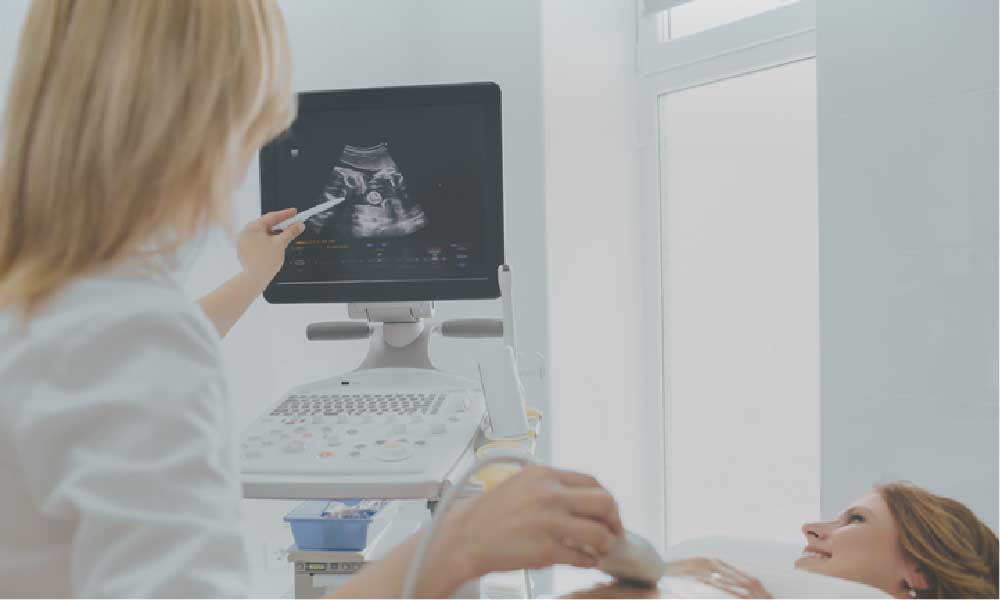The Future of Bladder Scanners

Bladder Scanners have come a long way in the last few years. They went from mechanical probes that require pricey service contracts to calibrate to electronic probes that require no calibration and undergo minimal wear and tear. They range from heavy machines that have low-quality workflows, all the way to 3D, efficient & lightweight machines that are easy to use and offer the same reimbursements. What does the future hold next for bladder scanners, what is the next leap? In this article, we will discuss that and more.
How do they Work?
Bladder Scanners work by sending high-frequency sound waves into the body from a transducer probe on the skin. When sound waves reflect back towards the probe, they become detectable and recordable. The bladder scanner then uses this information to construct a picture of a two-dimensional ‘slice’ through the body.
To get into technical detail, a handheld probe that sends and receives ultrasound waves can automatically move its transducer 360 degrees to scan 12 planes to produce a 3D image of the bladder. The probe is attached to the console by a detachable cable, depending on the model of the bladder scanner you intend to use.
What are their Intentions?
Bladder Scanners are intended for individuals needing bladder volume measurements in primary and secondary care settings, including both urology and surgical wards.
As bladder scanners may seem like ultrasound, but they are not intended for use on pregnant women or unborn babies. Additionally, bladder scanners have an ease of use that allows any healthcare professional, including healthcare assistants and nurses, to be competent in using the device after training provided by the manufacturer.
Cost in 2020
Bladder scanning technology is rapidly developing, which is a driver to making them more affordable and available. Just a few years ago the average cost of bladder scanners was around $9000. Today, Bladder Scanners can cost as low as $3500 depending on the brand and features that your facility requires.
The Past vs The Future
As we all know catheterization can be very painful, even more so when the catheterization is unnecessary. In this case, causing trauma and catheter-associated urinary tract infections to your patients. Future advancements in bladder scanning will seek to reduce these instances to zero.
During the last few years, bladder scanner technologies are quickly developing from simplistic handheld scanners with mechanical probes, to fully advanced electronic probes with 3D imaging capabilities. From bulky clunks of machinery that you would have to drag around the hospital’s halls and elevators to handheld portable devices that can be delivered to a patient’s room with haste and ease.
Mechanical probes are prone to constant wear and tear, costing much more to maintain over a long period of time. It will be difficult to find a technician/ warranty that still covers mechanical probes in the coming years. Products like the Cardiotech GT-4500 have fully electronic step-up probes requiring zero calibration, which ultimately makes them more affordable and accurate in the long term.
False readings are a thing of the past, the improvements of technology in bladder scanning have been set out to reduce error and provide clean, accurate measurements of postvoid residual volume measurements. Products like the Cardiotech GT-6000 have a built-in algorithm that helps to calculate the PVR in 3 dimensions. It also calculates and guides the user towards the center of the bladder to help prevent any errors in assessments. They are highly accurate with PVR readings with a standard deviation of ±7.5%. Over time, this standard deviation will become even more narrow.
Summary:
Technology is improving the quality of health care. If you are reading this and finding that your bladder scanners are reducing the quality of your care, you should strongly consider upgrading. You work hard and deserve a device that will improve both your quality of life and your patients. I mean, having to do fewer unnecessary catheterizations sounds great right?!
Let us help you save some time, contact our team of experts or check out the CardiacDirect collection of Bladder Scanner. Also, be sure to follow us on social media, for the latest news and updates!

